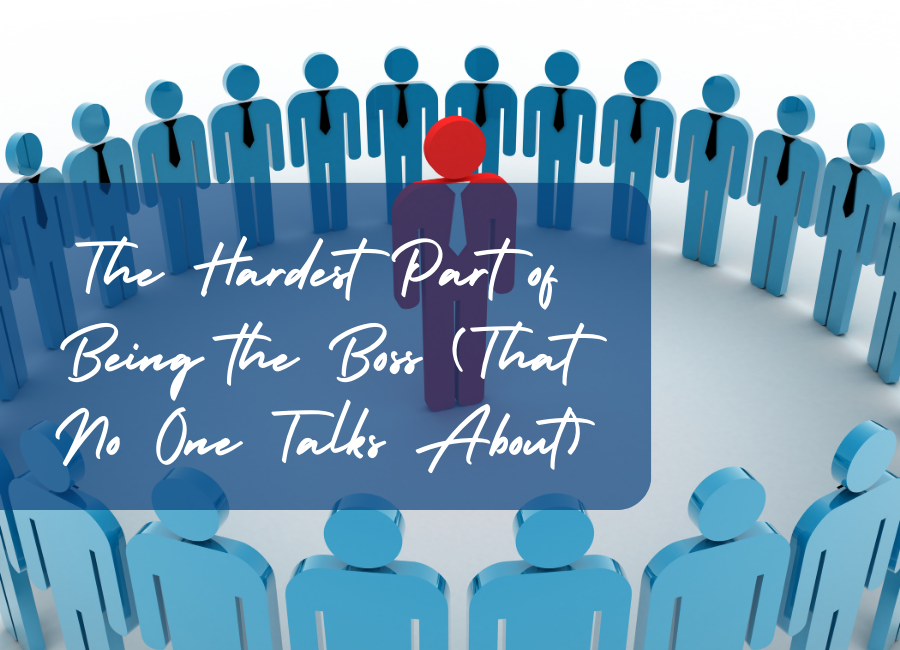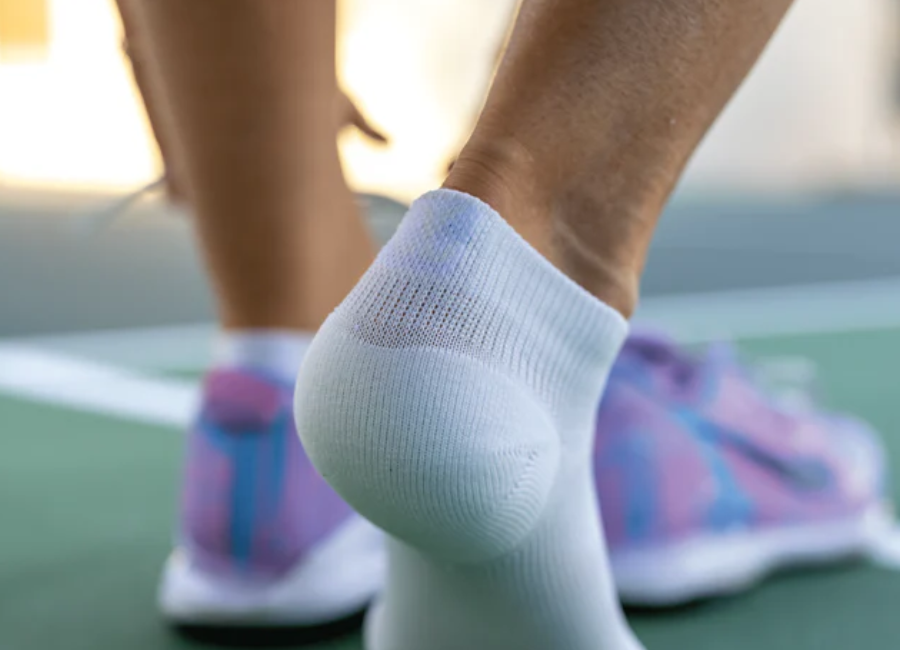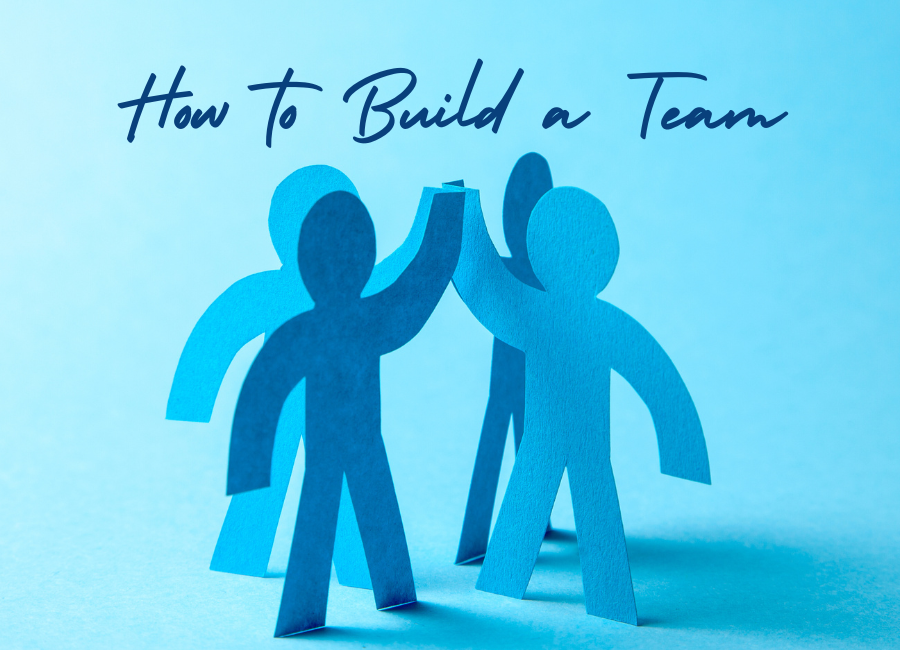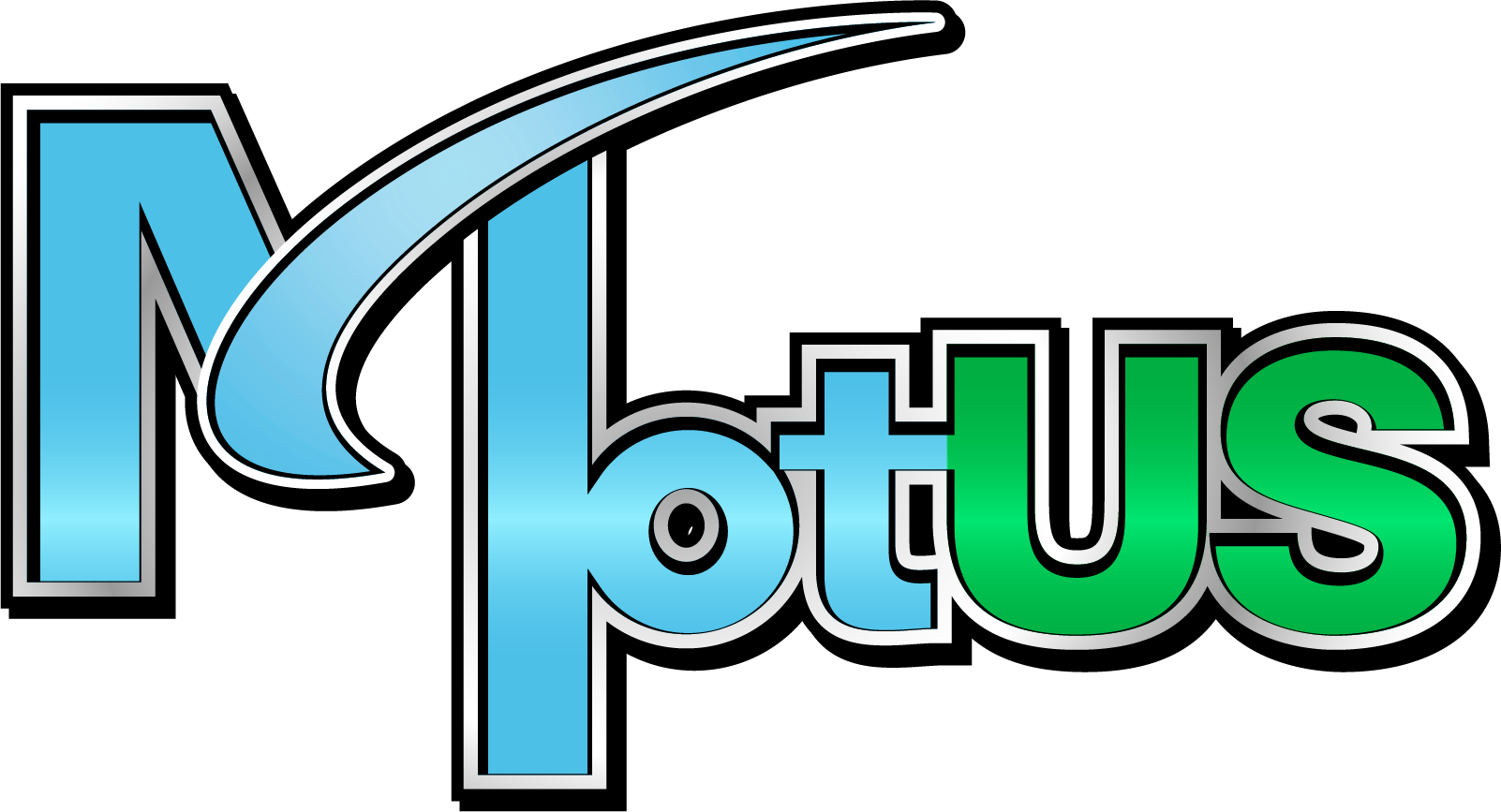Prioritizing Mental Health in Cheer and Dance:
August 14, 2024

Prioritizing Mental Health in Cheer and Dance: A Guide for Coaches
By: Tara Langston
As cheer and dance coaches, you play a pivotal role in shaping the lives of young athletes. Beyond perfecting routines and honing physical skills, one of your most crucial responsibilities is to prioritize and support the mental health of your team. In the high-energy world of cheer and dance, where precision, performance, and perseverance are paramount, it’s essential to recognize the significant impact mental well-being has on overall success.
The Importance of Mental Health in Athletics
1. Enhanced Performance:
Athletes with a strong mental health foundation are more likely to perform at their best. Mental clarity, focus, and emotional stability can significantly influence performance levels, helping athletes stay calm under pressure and resilient in the face of challenges.
2. Preventing Burnout: Cheer and dance require intense physical and mental commitment. Without proper mental health support, athletes can quickly experience burnout, leading to decreased performance, loss of passion, and even withdrawal from the sport.
3. Building Resilience: Mental health support equips athletes with tools to handle stress, setbacks, and the inevitable highs and lows of competition. This resilience not only benefits their athletic career but also prepares them for life’s challenges outside of sports.
4. Fostering Team Unity:
A focus on mental well-being encourages open communication and trust among team members. This creates a supportive environment where athletes feel valued, heard, and connected, enhancing overall team cohesion and morale.
How Coaches Can Support Their Athletes' Mental Health
1. Open Communication:
Establish a culture of openness where athletes feel comfortable discussing their feelings and concerns. Regularly check in with your team, both individually and as a group, to provide a safe space for sharing.
2. Education and Awareness:
Educate yourself and your athletes about the signs of mental health struggles and the importance of mental well-being. Provide resources that promote mental health awareness.
3. Encourage Balance:
Promote a balanced approach to training that includes adequate rest and recovery. Encourage athletes to pursue interests outside of cheer and dance to help them maintain a well-rounded lifestyle.
4. Set Realistic Goals:
Work with your athletes to set achievable goals and celebrate progress, no matter how small. This helps to build confidence and reduce the pressure of always striving for perfection.
5. Mindfulness and Relaxation Techniques:
Incorporate mindfulness practices, such as meditation, yoga, or deep-breathing exercises, into your training regimen. These techniques can help athletes manage stress and improve focus.
6. Lead by Example:
Model healthy behaviors and attitudes towards mental health. Your approach to handling stress, setbacks, and challenges will set the tone for your team.
As a cheer or dance coach, your influence extends far beyond the dance floor or the sidelines. By prioritizing mental health, you are not only nurturing better athletes but also contributing to the development of well-rounded, resilient individuals. Remember, a mentally healthy athlete is a happier, more focused, and more successful athlete. Let’s work together to create a supportive environment where mental health is as important as physical health, and where every athlete can thrive before, during, and after competitions.

Tara Langston is the passionate founder of Alumni Skincare and a licensed professional counselor in Texas. Dedicated to advocating for a holistic approach to athlete care, Tara seamlessly blends her expertise in mental health and skincare to support overall well-being. Her commitment to self-care and mental wellness drives her mission to empower athletes, emphasizing the importance of mental health alongside physical training. Through her innovative skincare line and counseling practice, Tara champions the integration of self-care routines and mental well-being strategies, ensuring athletes achieve balance and sustainable success in their lives.

Big events bring big emotions. In this episode of The MotUS Edge, Stacy Rowe, Cole Stott, Kevin Brubaker, and Casey Jones unpack how owners and coaches can navigate the highs of a winning routine, the sting of a miss, and the inevitable parent and official conversations that pop up on competition weekend. The Emotional Whiplash of a Mega-Event CheerSport, NCA, CheerExpo, Nashville—long days, huge stakes, and thousands of steps (sometimes literally 25 miles over two days). After a weekend like that, coaches can land on either extreme: “I’m the best coach alive” or “I shouldn’t be coaching.” Casey’s reminder: feel the feelings for a day, then reset—your kids still need you on Tuesday. Set Expectations Before You Set Foot in the Venue Winning is wonderful—but unrealistic targets can crush morale. If you’re newer or rebuilding, define success as: making finals, hitting both days, climbing a division rank, or delivering a clean routine under pressure. Clear expectations make for calmer staff rooms, saner parent sections, and happier athletes. Winning Changes Your Culture—Be Ready to Lead It When a program starts winning a lot, the vibe shifts: confidence can turn to cockiness, credit can become currency, and collaboration can fracture. Protect your culture: Celebrate team wins, not personal résumés. Make “help” a strength signal, not a weakness label. Reward behaviors that match values (selflessness, preparation, composure). Feedback Is a Gift (Even When It Stings) Judges are human. Calls won’t always go your way, and ties can stack score sheets. Productive debriefs start with: Assume good intent from officials. Be quick to see where judges are right. Ask good questions (specific, calm, and solution-oriented). Document takeaways and convert them into drill plans. A Calm Script for Score-Table Conversations “Coach here from [Gym/Team]. We appreciate your time. Could you help me understand two areas? What kept us from the higher range on [element]? What’s the simplest fix we can implement this week to move the needle?” Then thank them. Then leave. When Parents Boil Over Competition days stretch everyone thin. Head off drama by setting the standard early and often: Pre-Event Parent Brief (email + huddle): timelines, where to stand, how to support, who speaks to officials (not parents), and where concerns go post-performance. Priority Viewing Etiquette : one routine in, one routine out; no saving rows; clap for everyone. The 24-Hour Rule : no big emails or social posts until emotions cool and coaches have reviewed scores/video. Coaching Through Injury and “Worst-Case” Moments Sometimes the point flyer goes down in warmups. Sometimes a .01 swings you from podium to ninth. Prepare for resilience: Train alternates and “plug-and-play” versions of formations. Drill “calm reset” breaths before every run. Keep athlete-first language: safety > score > story. Celebrate the Journey (Not Just the Hardware) Kevin’s reminder: the top eight at major events can be separated by less than a point. If your only metric is first place, you’re signing up for misery. The real win: friendships, growth, composure, and delivering your best under lights. Quote We’re Sitting With “Customers will never love a company until the employees love it first.” — Simon Sinek Your athletes and parents feel your staff culture. Invest in your coaches’ wellbeing, clarity, and camaraderie, and the rest follows. Quick Wins You Can Implement This Week Post-Event Decompress: 15-minute staff huddle: 2 things we did well, 1 priority fix, owner sends a “proud of you” message to each coach. Score-to-Drill Sheet: Convert every judge note into a 10–15 minute station. No vague “we’ll clean this later.” Parent Hype + Boundaries: Send a “How to Win the Weekend (Even If We Don’t Win)” one-pager before travel. Credit Protocol: In team group chats and social posts: “Team > Me.” List contributors broadly and rotate shout-outs. Partner Spotlight CheerFest : Premier residential summer camp (ages 7–17) with elite instructors, grouped training, and the perfect end-of-summer spark before team season. Register at the link below. The MotUS Community : Templates, discounts, and a private owner network focused on better business and better weekends. Links Watch on YouTube: https://www.youtube.com/watch?v=ZR4NBunOc4k Listen on Spotify: https://open.spotify.com/episode/4Bsd66ybcm8KTbjdIOINff Listen on Apple Podcasts: https://podcasts.apple.com/us/podcast/navigating-events/id1786597546?i=1000700858593 MotUS: https://joinmotus.com CheerFest: https://cheerfest.com

For many cheer gym owners, marketing feels uncomfortable. You didn’t get into this industry to “sell” something — you got into it to coach athletes, build confidence, and create a space that feels like home. So when people tell you to market your gym more, it can feel forced, fake, or even a little gross. But here’s the truth: marketing isn’t the problem. The way marketing has been modeled is. At its core, marketing is simply communication. It’s how you tell your story, share your values, and help families understand what makes your gym the right place for their athlete. When done authentically, marketing isn’t salesy at all — it’s an extension of leadership and service. In this blog, we’ll break down why marketing matters for cheer gym owners, how to shift your mindset from “selling” to “serving,” and how to share your gym’s story in a way that feels natural, honest, and aligned with who you are. Why Gym Owners Struggle With Marketing Most gym owners resist marketing for the same reasons. You don’t want to come across as bragging. You don’t want to pressure families. You don’t want your gym to feel like a business first and a community second. Those concerns come from a good place — but avoiding marketing altogether doesn’t protect your integrity. It actually creates confusion. Families still need information. Athletes still need clarity. And when you don’t tell your story, people fill in the gaps themselves. Silence isn’t humility. It’s invisibility. If families can’t clearly understand who you are, what you stand for, and how you operate, they can’t confidently choose you — no matter how great your gym actually is. Marketing Is Storytelling, Not Selling Marketing doesn’t have to look like constant promotions, flashy graphics, or “limited-time offers.” Real marketing is storytelling. It’s answering the questions families are already asking: What is this gym like? How are athletes treated here? What values matter? How are challenges handled? What kind of community is this? When you share those answers consistently, trust begins to form long before someone ever walks through your doors. That trust is what turns interest into enrollment — and enrollment into long-term commitment. You’re not convincing people to join your gym. You’re helping the right people recognize that they belong there. Shifting From “Selling” to “Serving” Here’s the mindset shift MotUS believes in: Marketing is service when it helps families make informed decisions. Serving through marketing means: Explaining expectations clearly Educating parents about your process Highlighting growth, not just wins Showing the humans behind the brand Being honest about what you are — and what you’re not When families feel informed, they feel confident. When they feel confident, they trust your leadership. What Authentic Marketing Looks Like in Real Life Authentic marketing doesn’t require professional cameras or daily posting. It requires consistency and honesty. That might look like sharing a behind-the-scenes moment from practice, highlighting a coach’s leadership, explaining why you structure your season the way you do, or celebrating athlete growth that has nothing to do with trophies. People connect with real moments, not perfect ones. When families see your gym as a place run by thoughtful, intentional leaders, they’re far more likely to engage — and stay. A MotUS Perspective At MotUS, we believe marketing is leadership in public. It’s how you set expectations, build trust, and attract people who align with your mission. When you share your story with clarity and confidence, you don’t need to chase families. The right ones find you. Marketing isn’t about being louder than everyone else. It’s about being clear about who you are. Final Word Marketing doesn’t have to feel uncomfortable. When it’s rooted in honesty and service, it becomes one of the most powerful tools you have as a gym owner. Tell your story. Share your values. Lead out loud. Your community is listening.

For many cheer gym owners, marketing feels uncomfortable. You didn’t get into this industry to “sell” something — you got into it to coach athletes, build confidence, and create a space that feels like home. So when people tell you to market your gym more, it can feel forced, fake, or even a little gross. But here’s the truth: marketing isn’t the problem. The way marketing has been modeled is. At its core, marketing is simply communication. It’s how you tell your story, share your values, and help families understand what makes your gym the right place for their athlete. When done authentically, marketing isn’t salesy at all — it’s an extension of leadership and service. In this blog, we’ll break down why marketing matters for cheer gym owners, how to shift your mindset from “selling” to “serving,” and how to share your gym’s story in a way that feels natural, honest, and aligned with who you are. Why Gym Owners Struggle With Marketing Most gym owners resist marketing for the same reasons. You don’t want to come across as bragging. You don’t want to pressure families. You don’t want your gym to feel like a business first and a community second. Those concerns come from a good place — but avoiding marketing altogether doesn’t protect your integrity. It actually creates confusion. Families still need information. Athletes still need clarity. And when you don’t tell your story, people fill in the gaps themselves. Silence isn’t humility. It’s invisibility. If families can’t clearly understand who you are, what you stand for, and how you operate, they can’t confidently choose you — no matter how great your gym actually is. Marketing Is Storytelling, Not Selling Marketing doesn’t have to look like constant promotions, flashy graphics, or “limited-time offers.” Real marketing is storytelling. It’s answering the questions families are already asking: What is this gym like? How are athletes treated here? What values matter? How are challenges handled? What kind of community is this? When you share those answers consistently, trust begins to form long before someone ever walks through your doors. That trust is what turns interest into enrollment — and enrollment into long-term commitment. You’re not convincing people to join your gym. You’re helping the right people recognize that they belong there. Shifting From “Selling” to “Serving” Here’s the mindset shift MotUS believes in: Marketing is service when it helps families make informed decisions. Serving through marketing means: Explaining expectations clearly Educating parents about your process Highlighting growth, not just wins Showing the humans behind the brand Being honest about what you are — and what you’re not When families feel informed, they feel confident. When they feel confident, they trust your leadership. What Authentic Marketing Looks Like in Real Life Authentic marketing doesn’t require professional cameras or daily posting. It requires consistency and honesty. That might look like sharing a behind-the-scenes moment from practice, highlighting a coach’s leadership, explaining why you structure your season the way you do, or celebrating athlete growth that has nothing to do with trophies. People connect with real moments, not perfect ones. When families see your gym as a place run by thoughtful, intentional leaders, they’re far more likely to engage — and stay. A MotUS Perspective At MotUS, we believe marketing is leadership in public. It’s how you set expectations, build trust, and attract people who align with your mission. When you share your story with clarity and confidence, you don’t need to chase families. The right ones find you. Marketing isn’t about being louder than everyone else. It’s about being clear about who you are. Final Word Marketing doesn’t have to feel uncomfortable. When it’s rooted in honesty and service, it becomes one of the most powerful tools you have as a gym owner. Tell your story. Share your values. Lead out loud. Your community is listening.

How Apolla Socks Leapt From Shark Tank to a Global Performance Brand (with Co-founder Bri Zborowski)
Every gym owner says they want a strong team. But what most really want — whether they say it out loud or not — is a team that cares like they do. A team that shows up prepared. A team that protects the culture. A team that doesn’t crumble the moment you step out of the building. And here’s the hard truth: If your staff feels disconnected, disengaged, or replaceable, your gym will always feel heavier than it should. Building a team that actually feels like one doesn’t happen by accident. It’s built — intentionally, consistently, and often uncomfortably. Why Most Gym Teams Don’t Feel Like Teams Let’s start with what doesn’t work. Most gyms struggle with team unity because: Expectations live in the owner’s head instead of on paper Communication happens only when something goes wrong Staff are treated like help instead of partners Leadership is reactive, not proactive Buy-in is assumed instead of built People don’t disengage because they’re lazy. They disengage because they don’t feel connected to purpose. Loyalty Isn’t About Perks — It’s About Belonging Yes, pay matters. Schedules matter. Flexibility matters. But loyalty is built when staff feel: Seen for more than their role Trusted with responsibility Developed, not just used Included in the bigger picture When coaches feel like they’re just filling hours, they act like it. When they feel like they’re helping build something meaningful, they protect it. Belonging beats benefits every time. Clarity Is the Foundation of Buy-In Buy-in doesn’t come from motivational speeches. It comes from clarity. Clarity around: What success looks like How decisions are made What behavior is expected — and what won’t be tolerated How staff can grow inside your gym When expectations are unclear, frustration grows. When expectations are consistent, trust grows. A team can’t commit to what they don’t understand. Ownership Is Built Through Trust, Not Titles You can’t force someone to care more. But you can create an environment where caring makes sense. Ownership grows when: Staff are invited into problem-solving Leaders are allowed to lead without micromanagement Mistakes are coached, not punished Responsibility is paired with support If every decision runs through you, your team learns to wait. If you empower leaders, your team learns to lead. Communication Is the Glue Teams fall apart in silence. Strong communication doesn’t mean more messages — it means better ones : Regular staff meetings with purpose Clear follow-ups after decisions Space for feedback (and proof it’s heard) Honest conversations, even when they’re uncomfortable Avoiding hard conversations doesn’t protect culture. It quietly destroys it. Create Shared Wins — Not Just Individual Praise Recognition shapes behavior. If you only celebrate: Wins Scores Titles You miss opportunities to reinforce: Leadership Effort Growth Accountability Publicly recognize behaviors that align with your values. That’s how culture becomes contagious. The MotUS Lens At MotUS, we believe teams aren’t built through control — they’re built through connection.The strongest gyms don’t rely on one person holding everything together. They develop leaders, build trust, and create systems that allow people to thrive together. A team that feels united: Protects your culture Supports your athletes Lightens your leadership load And stays longer Key Moves to Build a Real Team Create clarity before expecting commitment Invest in people, not just positions Communicate early and often Develop leaders intentionally Celebrate values, not just results Final Word A team that feels like one doesn’t just make your gym better — it makes your leadership sustainable. Build people. Build trust. Build something worth belonging to. That’s how teams last.

Every January, the same messages flood our feeds: New year. New goals. New you. And while fresh starts feel exciting, here’s the truth most business owners already know — motivation fades fast. Especially when you’re running a gym, leading staff, managing parents, developing athletes, and still trying to grow a business. At MotUS, we’re not here for empty resolutions. We’re here for what actually works. And in business, discipline will always outperform motivation. Motivation Is a Spark. Discipline Is the Engine. Motivation feels good. It’s that surge of energy you get when you set a goal, map a vision, or attend a great event. But motivation is emotional — and emotions fluctuate. Discipline is different. Discipline is what shows up when motivation doesn’t . It’s: Reviewing your numbers even when you don’t want to Having the hard staff conversation instead of avoiding it Following systems instead of winging it Doing the unglamorous work that compounds over time Motivation gets you started. Discipline keeps you moving. Why “New Year, New You” Falls Apart for Business Owners The resolution mindset often fails gym owners because: It relies on feelings instead of systems It focuses on massive change instead of small consistency It creates pressure to be perfect instead of committed It ignores the reality of busy seasons, burnout, and unpredictability Running a gym isn’t a 30-day challenge. It’s a long game. And long games are won with habits — not hype. Discipline Looks Different in the Gym World Discipline doesn’t mean rigid or robotic. It means intentional . In your gym, discipline might look like: Weekly check-ins with your leadership team Consistent communication with parents (even when things are calm) Tracking retention, not just registrations Training your staff the same way every season Protecting your time with boundaries and systems None of that is flashy. All of it is powerful. Build Habits That Carry You Through the Year Instead of setting resolutions you’ll forget by February, focus on habits you can repeat. Here’s a MotUS-style reset: 1. Shrink the Goal Big visions matter — but small habits move them forward. Ask yourself: What’s one thing I can do weekly that improves my business? 2. Make It Automatic If it lives only in your head, it won’t last. Put it on the calendar. Create a checklist. Build a system. 3. Focus on Consistency, Not Intensity You don’t need a perfect week. You need repeatable ones. 4. Track What Matters What you measure improves. Choose a few key metrics and review them regularly. 5. Give Yourself Grace — Then Get Back to Work Miss a week? Fine. Don’t miss two. Discipline isn’t about never failing — it’s about always returning. What Discipline Creates Over Time When discipline becomes your default: Your gym becomes more stable Your team feels clearer and more confident Parents trust your leadership Athletes benefit from consistency Decision fatigue decreases Growth becomes predictable, not chaotic That’s how sustainable businesses are built — not through bursts of motivation, but through steady leadership. The MotUS Perspective At MotUS, we don’t believe in overnight transformations. We believe in showing up. We believe in doing the work. We believe in progress over perfection. The strongest gym owners aren’t the most motivated — they’re the most consistent. They commit to habits that align with their values and trust the process, even when it’s uncomfortable. That’s how movements grow. That’s how leaders are built. That’s how gyms last. TL;DR: Discipline > Motivation ✅ Motivation gets you started ✅ Discipline keeps you going ✅ Habits beat resolutions ✅ Consistency builds confidence ✅ Systems create freedom Final Word This year doesn’t need a “new you.” It needs a committed you . One who shows up even when it’s hard. One who builds habits instead of chasing hype. One who understands that leadership is proven in the quiet, consistent moments. Keep showing up. Keep doing the work. And remember — MotUS is us. It’s we. It’s you. It’s me. We rise together.

December is strange. You’re tired. Your staff is stretched. Your budget is gasping for air. Your athletes are either coasting or already counting down to break. You’re in between burnout and breakthrough. You’ve survived another season kick off—but have you grown through it? Most gym owners finish the fall by pushing through until break. They collapse. Unplug. Crash land into the holidays and promise themselves they’ll “figure things out in January.” ut what if the secret to transforming the year… starts with how you end this one? What if the most important meeting you have all year… is the one you schedule with yourself? Let’s Be Honest You probably: Didn’t hit every goal you set in January Said yes to too many things out of fear or obligation Carried more emotional weight than you care to admit Had moments you wondered if this whole thing was worth it And yet… You showed up. You kept going. You solved problems, built people, made magic, and held it all together. Before you look forward, you need to look back—not to criticize, but to learn . Here’s how. A 4-Part Framework for Reflecting Like a Real CEO Take 30 minutes. Grab your favorite drink. And go somewhere you won’t be interrupted. Write these out in a journal, on your iPad, or even record a voice note. Just make it real. 1. What Did I Build? Think beyond numbers. What did you actually build? New systems? A stronger culture? Leadership in your staff? More trust with parents or athletes? Ask: What am I proud of that wasn’t here 12 months ago? Even small wins matter. Especially the ones that only you know took everything to create. 2. What Broke (and What Did It Teach Me)? Don’t skip this part. Growth comes from honesty . What didn’t work? Where did you waste time, energy, or money? What did you overcomplicate? Where did your leadership fall short? Ask: What did I learn the hard way—and what will I never repeat? Breakdowns often lead to breakthroughs, if we’re willing to look them in the eye. 3. What (and Who) Helped Me Thrive? Burnout doesn’t just come from overworking. It comes from under-supporting. Who were your MVPs this year? What habits kept you sane? What partnerships, tools, or routines added value? Ask: What do I want to protect and expand in 2026? Because growth isn’t just about doing more . It’s about doubling down on what’s already working. 4. What Does the 2026 Version of Me Need? Finally, cast a vision—not just for your gym, but for you as a leader. What do you want your role to look like next year? What do you want less of? What do you want more of? What does future-you thank you for doing now ? Ask: If I lived 2026 with clarity, boundaries, and purpose… what would that change? Final Thought: Reflection Is a Business Strategy This isn’t fluff. Reflection is data . It’s vision. It’s fuel. Your competitors are planning programs. You’re planning transformation. And trust this: gym owners who reflect with honesty end up leading with confidence. Don’t wait for January. Build your next chapter now. Take the lessons. Celebrate the wins. Close the year with gratitude, clarity, and a little bit of fire. 2026 is waiting for a better version of your gym. But even more than that—it’s waiting for a stronger, clearer you . Key Moves to Make: Post With Purpose, Grow With Clarity Social media is your gym’s most powerful visibility tool Focus on showcasing people, serving value, and creating conversation Use a mix of videos, stories, spotlights, and community moments Don’t chase perfection — stay real, stay relevant Show who you are, and your audience will stick around Want to go deeper? Make a date with yourself. Or share this reflection process with your leadership team. You’ll be surprised how much clarity it brings—and how much vision it unlocks. Download this staff meeting exercise - https://docs.google.com/document/d/1cojfH02VhmCRpi6zWrAyUzIVkGh1E30M7NW0_vqdVEM/edit?usp=sharing You’ve got this. Let’s close the year like the leaders we’re becoming.

In the cheer world, first impressions don’t just happen at the front desk — they happen on your feed. Before families tour your gym, they scroll your Instagram. Before athletes commit, they watch your Reels. And before parents enroll, they check to see if your online presence reflects the energy, excellence, and culture you’re promising. The best part? You don’t have to be a content machine or social media guru. You just need to be consistent, authentic, and intentional. Why Social Media Is Your Gym’s Digital Front Door Whether you’re recruiting, retaining, or just staying top-of-mind — your gym’s social presence matters. Here’s what it can do: Drive visibility: Parents always check social before reaching out. Build trust: A polished feed shows families you run a professional, well-managed program. Boost retention: Celebrating athletes online strengthens emotional connection. Attract talent: Coaches and athletes want to be part of programs that look the part. Grow community: Social media lets your gym’s culture extend beyond your walls. The 3 Core Pillars of Great Gym Content Showcase Your People Athletes. Coaches. Parents. These are your brand ambassadors. Feature them often and authentically. Educate & Inspire Share tips, motivation, and behind-the-scenes wisdom. Don’t just sell — serve. Invite Engagement Ask questions, run polls, and repost family content. Make your feed a conversation , not just a bulletin board. Content Ideas That Actually Work Plug these into your content calendar on repeat: Athlete of the Week Skill progressions (before/after) Coach introductions Birthday or milestone shoutouts Throwbacks from past seasons Parent testimonials Practice sneak peeks Motivational messages tied to your gym’s values Community events and outreach Game-day energy or comp prep highlights Pro Tip: If your athletes would share it, you’re on the right track. What Works Best (Without Burning Out) Consistency wins. You don’t need to post every day — just post regularly. Video is king. Reels and short-form clips perform better than static posts. Show faces. People connect with people, not logos or flyers. Engage back. Respond to comments, share tagged stories, and thank families for participating. Batch content. Save time by capturing multiple posts in one session What to Avoid on Your Feed All sales, no story. If it feels like a nonstop commercial, families tune out. Low-quality visuals. Grainy or unbranded posts damage credibility. Inconsistency. Long silences followed by random posts confuse your audience. Inauthentic trends. Stay relevant, but don’t copy what doesn’t reflect your gym. When You Post With Purpose, This Happens Athletes feel proud to share and repost Parents get a window into your culture — and build more trust Coaches feel seen and valued New families discover a gym that feels alive Your brand becomes magnetic — without spending a dime on ads The MotUS Lens At MotUS, we believe social media isn’t just marketing — it’s storytelling . Every post is a chance to show the heart of your gym: the people, the progress, the pride, and the purpose behind what you do. When done right, your feed doesn’t just grow your following — it grows your community. Key Moves to Make: Post With Purpose, Grow With Clarity Social media is your gym’s most powerful visibility tool Focus on showcasing people, serving value, and creating conversation Use a mix of videos, stories, spotlights, and community moments Don’t chase perfection — stay real, stay relevant Show who you are, and your audience will stick around Final Word You don’t need trends, filters, or flashy edits to win on social media. What you need is consistency, authenticity, and connection. When your feed reflects your values, celebrates your people, and tells the real story of your gym — the right families, athletes, and coaches find their way to you. Because at the end of the day, social media doesn’t build brands — people do .

If you’ve ever left a convention center thinking “did I just walk 25 miles and emotionally age 10 years?”—same. In this week’s ModUS Edge, Stacy, Cole, Kevin, and Casey dig into the messy middle of navigating events: coaching highs and lows, talking with judges, handling parents, and keeping your staff culture intact when half the table is ordering celebratory cheesecake and the other half wants a rain check on life. Here’s your 3-minute, friendly, slightly caffeinated guide—peppered with real-world scripts you can steal. The Pressure Cooker Is Real (and Normal) Large events (CheerSport, NCA, CheerExpo Nashville, pick your monster) compress: Months of work → five minutes on the mat 10–15 hour days → 30,000–50,000 steps Pride + fatigue → spicy emotions Coaches come out either floating (“I am a genius!”) or spiraling (“Do I even know how to coach?”). Both are normal. Build a Day-After Protocol so the pendulum doesn’t decide your season. Day-After Protocol (steal this): Feel it (24-hour rule): Celebrate or sulk, but cap it. Frame it : “We trained well, we learned X, we’ll adjust Y.” Focus it : Three fixes for practice #1 back. Forward it : Team message by noon: “Proud of your effort. Here’s our plan.” Dad-joke breath: Which is faster, hot or cold? Hot—you can catch a cold. (…We’ll show ourselves out.) Expectations: Your Emotional Safety Net The difference between devastation and determination is often pre-framing . Newer programs: Define “win” as finals made , zero-deduct routines , or hitting a season-first skill on stage . Established programs: Confidence ≠ cockiness. If “champ or bust” is the only acceptable outcome, you’re one score slip away from a culture crisis. Huddle line you can use: “We play to win and to improve. If we hit our standard, we succeeded. If we also take home metal, that’s dessert.” Talking to Judges & Event Officials (Without Raising Your Blood Pressure) Judges want to get it right. They also don’t live inside your choreography brain. Before you walk up: Circle where they’re right on the sheet. (They usually are on something.) Pick one category to discuss (jumps, stunt difficulty, etc.). Bring a clip if allowed; keep it 2 minutes . Open with this: “Coach from [Gym], Level [X]. Thank you for your notes—especially on [specific]. Could you help me calibrate our [category] vs. the range you were seeing? Here’s a 15-sec clip.” Leave with this: “Got it—so if we [specific tweak], our target range becomes [X]. Appreciate your time.” No monologues. No sarcasm. No “my kids worked too hard” (everyone’s kids did). Parent Dynamics: From Squabbles to Support Squad Fatigue + money + travel = feelings. Set lanes before you load the bus. Pre-event parent note (edit and send): Priority Viewing = cheer zone, not debate stage. Scores & placements discussed by staff only . If emotions spike, text the team number “PAUSE” and we’ll regroup after awards. Your best job today: film smiles, pack snacks, high-five often. At the event: If tempers flare: “I hear you. We’ll review scores and the video and update by [time]. Right now we’ve got kids to coach.” When It Falls Apart in Warm-Up (and It Will Someday) An injury, a popped layout, a last-minute replacement—welcome to coaching. In-the-moment script: To the athlete: “You’re safe, we’ve got you. Breathe. To the team: “We adjust and execute. Count matters more than choreo.” To the score: “Clean > cute.” Strip to the reliable. Later, honor the athlete and the work. You’re building humans, not just routines. Dinner Table Diplomacy One end of the table is planning a victory lap; the other end is googling “new careers.” Seat by project , not placement. Pair a coach who’s flying high with one who needs perspective. Toast process wins (hit rate, upgraded stunt, best coverage) before placements. Feedback Is a Gift (Even When It Feels Like a Cactus) It stings because you care. Make “gift” your team’s reflex. Staff debrief template: 2 things the judges nailed 1 thing we disagree on (and why) 3 changes we’ll try by next practice Bonus tip: Record a 2-minute Loom (or phone video) summary for parents: what the sheet said, what we’re changing, how they can help (sleep, nutrition, mindset). Winning Changes Your Culture—Guard It Sustained winning sneaks in entitlement if you’re not ready. Celebrate standards , not just statuses . (“We hit our expectation for technique,” not “We’re Stingrays, of course we won.”) Rotate credit widely : stunt group of the week, unsung hero, best teammate. Make “Can I get help?” a strength , not a scarlet letter. Quick Event-Day Checklist ☐ Expectation email (athletes & parents) sent 48 hrs prior ☐ Coach roles for warm-up & mat (caller, fix, spot, calm) ☐ Judge plan : 1 category, 2 minutes, 1 ask ☐ Parent captain assigned (snacks, seats, smiles) ☐ Post-day message scheduled (pride + plan) ☐ Day-After Protocol on deck You’ll laugh, you’ll nod, you’ll steal at least two lines. For the full conversation (and more chapstick discourse than anyone expected), dive into the episode: The MotUS Edge Podcast – YouTube: https://www.youtube.com/@themotusedge The MotUS Edge Podcast – Apple: https://podcasts.apple.com/us/podcast/the-motus-edge/id1786597546 The MotUS Edge Podcast – Spotify: https://open.spotify.com/show/63xUjmymxRiXHkSSEjlfOD?si=e5036453706148d9&nd=1&dlsi=02e897fb37a148ce

Let’s face it — “upselling” can sound slimy. Like you're trying to squeeze more dollars from parents. But that’s not how we do things at MotUS — and it shouldn’t be how you run your gym either. Upselling done right is simply helping families say “yes” to more value. It's not about pressure — it’s about partnership. When families win, athletes grow, and your gym becomes stronger. Rethinking the Word "Upsell" Upselling doesn’t mean pushing fluff. It means: Showing families programs they didn’t even know existed. Offering real tools to help athletes progress faster. Recommending opportunities that match a family’s goals. Making their overall gym experience better. Bottom line? Upselling is just another word for serving well Why It Matters for Your Gym When it’s done with heart, upselling: Boosts athlete development: Extra privates, clinics, and specialty classes can fast-track skills. Improves parent satisfaction: Families feel seen and supported when you recommend the right fit. Creates more coaching opportunities: New programs mean more hours, more buy-in, and happier staff. Strengthens your bottom line: Diversified income means you’re less vulnerable during slow seasons. This isn’t just about growth — it’s about sustainability. 5 Natural Moments to Offer More (Without the Ick) Looking for the right time to suggest something extra? Try these: At Registration: Offer class bundles, discounted add-ons, or starter gear packages. After Big Wins: Just landed a new skill? Recommend a private or advanced clinic. Seasonal Hype: Camps, workshops, or themed training are fun and easy yeses. During Parent Chats: Listen for concerns—confidence, conditioning, flexibility—and point them to solutions. In the Pro Shop: Spirit gear and accessories are upsells that build culture and revenue. The goal? Make the next step obvious and helpful. How to Offer More Without Feeling Salesy Here's the MotUS playbook for upselling with integrity: Only Recommend What You Believe In If it’s not truly valuable, don’t pitch it. Start with Questions Ask what families want, then connect the dots. Sell the Outcome, Not the Item Instead of “new class alert,” try: “This class will help your athlete get comp-ready faster.” Give Options, Not Ultimatums Offer choices. Let families feel empowered, not pressured. Train Your Team to Spot the Opportunity Every coach and front desk staffer should know how to guide, not push. When You Upsell with Heart, Here’s What Happens Athletes grow because they get more chances to train. Parents trust you because they feel heard and helped. Your team thrives because they get more buy-in and hours. Your business grows because the model supports long-term stability. From the MotUS Lens At MotUS, we don’t see upselling as “extra.” We see it as essential. It's a mindset shift—from selling to serving. And when you operate from that place, families will feel it. They’ll thank you for it. And your gym will be better because of it. TL;DR: Make the Upsell Easy to Say Yes To ✅ Think: add value, not pressure ✅ Focus on outcomes, not features ✅ Offer choices at natural moments ✅ Always, always lead with service Final Word Upselling doesn’t have to feel gross. In fact, it should feel like exactly what they needed. So next time you offer a class, camp, or product, ask yourself: “Does this help this athlete get more out of their journey?” If the answer is yes, then don’t hesitate to offer it — because that’s not sales. That’s service.

Let’s face it — “upselling” can sound slimy. Like you're trying to squeeze more dollars from parents. But that’s not how we do things at MotUS — and it shouldn’t be how you run your gym either. Upselling done right is simply helping families say “yes” to more value. It's not about pressure — it’s about partnership. When families win, athletes grow, and your gym becomes stronger. Rethinking the Word "Upsell" Upselling doesn’t mean pushing fluff. It means: Showing families programs they didn’t even know existed. Offering real tools to help athletes progress faster. Recommending opportunities that match a family’s goals. Making their overall gym experience better. Bottom line? Upselling is just another word for serving well Why It Matters for Your Gym When it’s done with heart, upselling: Boosts athlete development: Extra privates, clinics, and specialty classes can fast-track skills. Improves parent satisfaction: Families feel seen and supported when you recommend the right fit. Creates more coaching opportunities: New programs mean more hours, more buy-in, and happier staff. Strengthens your bottom line: Diversified income means you’re less vulnerable during slow seasons. This isn’t just about growth — it’s about sustainability. 5 Natural Moments to Offer More (Without the Ick) Looking for the right time to suggest something extra? Try these: At Registration: Offer class bundles, discounted add-ons, or starter gear packages. After Big Wins: Just landed a new skill? Recommend a private or advanced clinic. Seasonal Hype: Camps, workshops, or themed training are fun and easy yeses. During Parent Chats: Listen for concerns—confidence, conditioning, flexibility—and point them to solutions. In the Pro Shop: Spirit gear and accessories are upsells that build culture and revenue. The goal? Make the next step obvious and helpful. How to Offer More Without Feeling Salesy Here's the MotUS playbook for upselling with integrity: Only Recommend What You Believe In If it’s not truly valuable, don’t pitch it. Start with Questions Ask what families want, then connect the dots. Sell the Outcome, Not the Item Instead of “new class alert,” try: “This class will help your athlete get comp-ready faster.” Give Options, Not Ultimatums Offer choices. Let families feel empowered, not pressured. Train Your Team to Spot the Opportunity Every coach and front desk staffer should know how to guide, not push. When You Upsell with Heart, Here’s What Happens Athletes grow because they get more chances to train. Parents trust you because they feel heard and helped. Your team thrives because they get more buy-in and hours. Your business grows because the model supports long-term stability. From the MotUS Lens At MotUS, we don’t see upselling as “extra.” We see it as essential. It's a mindset shift—from selling to serving. And when you operate from that place, families will feel it. They’ll thank you for it. And your gym will be better because of it. TL;DR: Make the Upsell Easy to Say Yes To ✅ Think: add value, not pressure ✅ Focus on outcomes, not features ✅ Offer choices at natural moments ✅ Always, always lead with service Final Word Upselling doesn’t have to feel gross. In fact, it should feel like exactly what they needed. So next time you offer a class, camp, or product, ask yourself: “Does this help this athlete get more out of their journey?” If the answer is yes, then don’t hesitate to offer it — because that’s not sales. That’s service.

